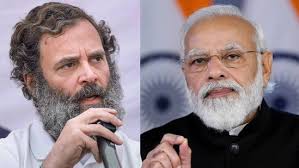Today’s event where Prime Minister Narendra Modi, Leader of the Opposition Rahul Gandhi, and Parliamentary Affairs Minister Kiren Rijiju accompanied Lok Sabha Speaker Om Birla to the chair is a symbolic representation of how democracy can function effectively. Such gestures highlight the importance of unity and respect among political leaders, which is essential for the smooth functioning of parliamentary democracy.
The beauty of democracy lies in its capacity to accommodate diverse viewpoints and facilitate collaboration among different political entities. In the context of India, a robust democracy can be strengthened when the ruling party and the opposition work together constructively. Here are some ways in which they can collaborate to fortify democracy and uphold the Constitution:
1. Respect for Democratic Institutions
Both the ruling party and the opposition must respect the integrity and independence of democratic institutions such as the Parliament, judiciary, and Election Commission. Ensuring these institutions function without undue influence is crucial for a healthy democracy.
2. Constructive Dialogue
Regular and open dialogue between the ruling party and the opposition can help address issues before they escalate into conflicts. This can be facilitated through formal mechanisms like parliamentary committees and informal interactions.
3. Bipartisan Committees
Forming bipartisan committees to tackle pressing national issues can lead to more balanced and comprehensive solutions. For instance, committees on national security, economic reforms, and social justice can benefit from the inputs of both the ruling and opposition parties.
4. Policy Making and Legislation
Involving the opposition in the policymaking process can lead to more inclusive and well-rounded policies. When drafting new laws, seeking inputs and amendments from the opposition can help address a wider range of concerns and foster a sense of shared ownership.
5. Upholding Constitutional Values
Both sides should commit to upholding the values enshrined in the Constitution, such as justice, liberty, equality, and fraternity. This can be achieved by ensuring laws and policies align with constitutional principles and by resisting any attempts to undermine these values.
6. Public Accountability
Encouraging transparency and accountability in governance can help build trust among the populace. The ruling party should be open to scrutiny and constructive criticism from the opposition, while the opposition should provide credible alternatives and hold the government accountable without resorting to obstructionism.
7. Addressing National Issues
Collaborating on national issues such as poverty, healthcare, education, and national security can lead to more effective solutions. Joint efforts can ensure that policies are not only well-crafted but also widely accepted and implemented efficiently.
8. Promoting Tolerance and Pluralism
A democracy thrives on diversity and pluralism. Both the ruling party and the opposition should promote tolerance and inclusivity, condemning any form of discrimination or divisive politics. This helps create a more cohesive and resilient society.
Strengthening democracy in India requires a commitment from both the ruling party and the opposition to work together constructively, respect democratic norms, and uphold constitutional values. Through mutual respect, open dialogue, and collaborative efforts, they can ensure that the democratic framework remains robust and serves the best interests of the nation and its people.

